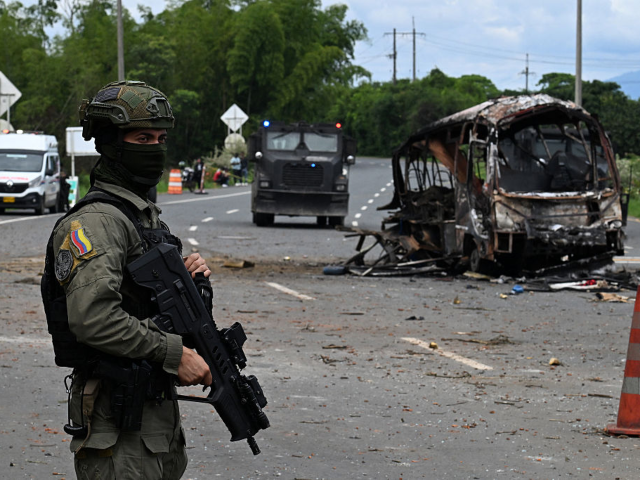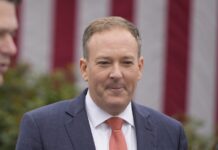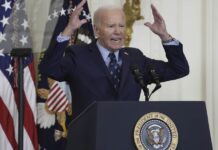Illegal armed groups in Colombia have significantly expanded their territorial control and added thousands of members to their ranks in the past three years of the administration of far-left President Gustavo Petro, Reuters reported on Tuesday.
Reuters, citing information obtained from a biannual domestic security and intelligence report shared with the outlet anonymously, detailed that armed groups experienced a 45 percent growth over the past three years, going from an estimated 15,120 members in mid-2022 to 21,958 people by the end of June 2025.
According to the report, armed groups grew seven percent in the last year alone with the inclusion of 1,469 new members. Petro, a former member of the Marxist M19 terrorist organization and Colombia’s first leftist president ever, took office in August 2022.
The dramatic growth detailed in the document is approximately 2.65 times higher than the 17 percent increase reportedly recorded during the administration of Petro’s predecessor, conservative former President Iván Duque. Colombian Defense Minister Pedro Sánchez confirmed the surge in armed group members to Reuters, blaming the rise on groups “exploiting the government’s peace efforts.”
“This [the increase] is linked to poorly designed ceasefires that gave a strategic advantage to armed groups so they could strengthen their territorial control,” Eduardo Pizarro, a conflict expert at the National University of Colombia, told Reuters.
“The peace policy’s failure is total and irreversible,” he added, asserting that it would be difficult for the government to reduce armed group numbers through negotiations.
Upon taking office in 2022, Petro implemented a policy package called “Total Peace” to tackle Colombia’s decades-long violence and armed gang problems, taking drastically different actions than his predecessors. The program focuses on lowering crime by negotiating with criminal organizations while spending money on education programs and social rehabilitation.
Over the past three years, local outlets and critics of Petro’s leftist government have panned Total Peace as a failure. In February, a survey found that 70 percent considered Total Peace to be on the wrong track and over 80 percent said that Colombia’s guerrilla problem has worsened. In April, nearly three years after its launch, current Interior Minister Armando Benedetti admitted that Total Peace “has not turned out well.”
One of the initiatives that forms part of Total Peace is “Youth in Peace,” a government program launched in 2023 reportedly riddled with “operation and administrative difficulties.” The program aims to take impoverished young Colombians and provide them with money stipends and education to turn them into “peace managers.” After receiving education, participant youths are then intended to act as mediators in conflicts in their respective regions and “reduce the participation of young people in illegal activities of armed groups.”
In June, Petro acknowledged that the boy who tried to assassinate conservative Senator and presidential candidate frontrunner hopeful Miguel Uribe was a member of Youth in Peace.
The minor, reportedly between the ages of 14 and 15, shot Uribe three times during a campaign rally event in the capital city of Bogotá, inflicting two gunshot wounds to the senator’s skull and one to his left leg. Since then, Sen. Uribe has been unconscious and in critical condition, fighting for his life at a Bogotá medical facility. Uribe’s neurological prognosis remains reserved at press time.
“The district government had already identified the murderous child’s troubled nature, took him into one of its programs, and transferred him to one of my government’s programs: ‘Youth in Peace,’” Petro said at the time in a post on his official Twitter account.
“There, according to the report I have from the professionals, he demonstrated a completely troubled personality, with no ability to form interpersonal bonds,” he continued. “He lasted two months, did not attend any classes, and voluntarily withdrew.”
Reuters pointed out in its report on Tuesday that armed groups — which fund themselves through drug trafficking, illegal mining and other crimes — have remained present in Colombia for over six decades despite the 2016 “peace deal” signed by the Revolutionary Armed Forces of Colombia (FARC) Marxist terrorist group and then-President Juan Manuel Santos, who was awarded the Nobel Peace Prize for the peace deal.
The so-called peace deal granted FARC’s leadership a broad list of benefits such as legal immunity and uncontested congressional seats. The Colombian government and mainstream media claimed that the active FARC forces are a “dissident” faction and that the “true” FARC is the leadership in Bogotá.
In June, FARC launched a series of 24 deadly bomb attacks in Southwestern Colombia, killing eight and leaving at least 78 injured. FARC 33rd Front and the Marxist National Liberation Army (ELN) terrorist organization waged a brutal clash against each other this year over control of coca leaf crops in the Colombian region of Catatumbo that left dozens dead and thousands displaced from their homes.
Coca leaves are the main ingredient used in the manufacture of cocaine — a drug that, over the past years of Petro’s leftist presidency, has seen record all-time production highs according to the United Nations Office on Drugs and Crime (UNODC). Petro has passionately defended cocaine and has repeatedly called for its legalization. In February, the far-left president claimed that cocaine is only illegal because “it’s produced in Latin America,” is “not worse than whiskey,” and could be “sold like wine” if it were legalized.
Christian K. Caruzo is a Venezuelan writer and documents life under socialism. You can follow him on Twitter here




